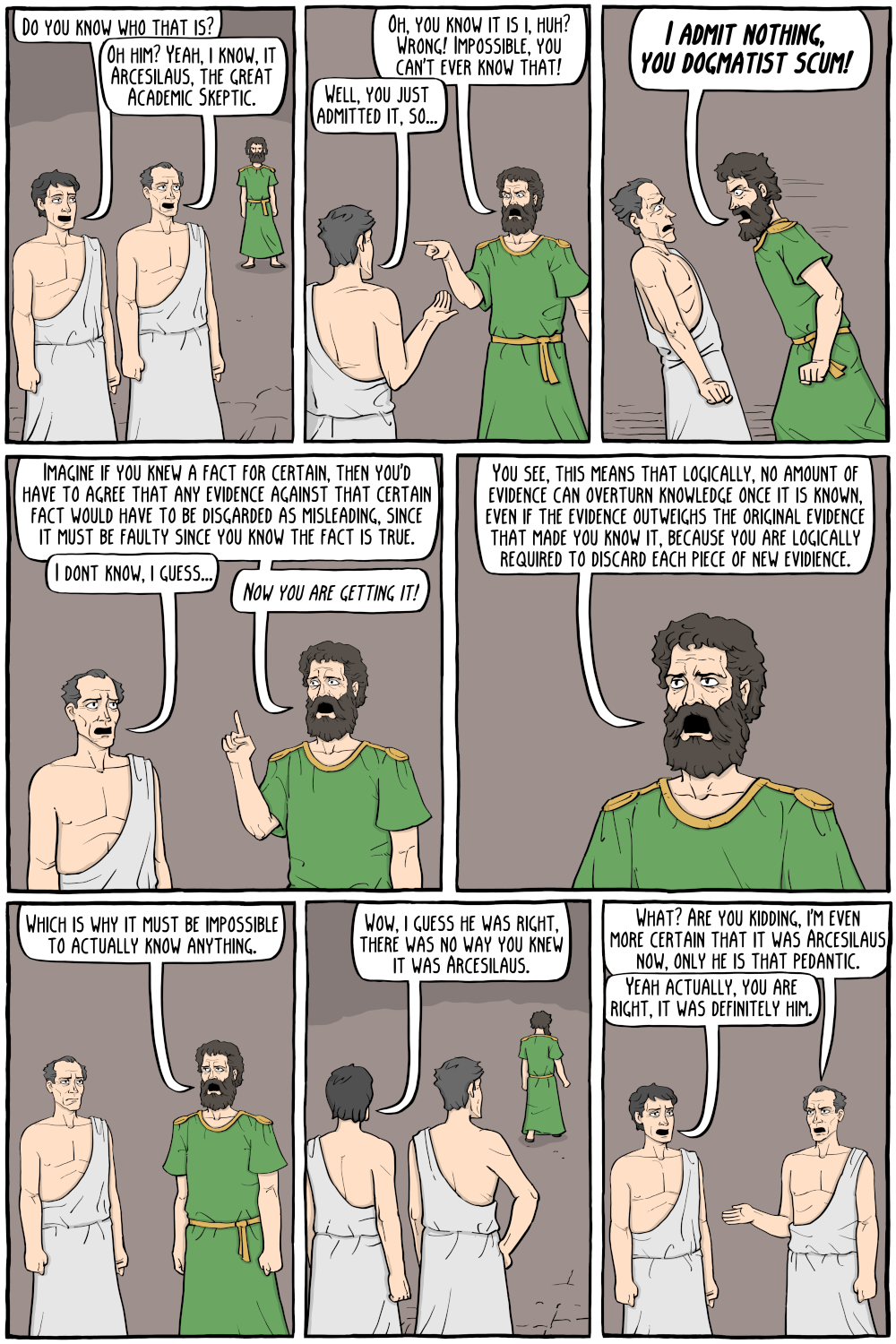
Academic Skepticism was a school of ancient Greek philosophy that believed all things were inapprehensible, and criticized the dogmas of other schools of thought, such as the Stoics, for believing that they could come to truth by the senses or other means. They thought that judgment should always be suspended at least a little.
The comic is describing something called the Paradox of Dogma, which says that if you actually achieve true 100% knowledge of something, it can never be undone, because you would logically be required to discard all evidence against it as misleading. Take something that we believe we know 100%, that 1 does not equal 2. Below we see a demonstration that 1 DOES equal 2:
x = y
x2 = xy
x2 - y2 = xy - y2
(x - y)(x + y) = y(x - y)
(x - y)(x + y)/(x - y) = y(x - y)/(x - y)
x + y = y
y + y = y
2y = y
2 = 1
Now, even if we can't spot the flaw in this argument, we basically know it is misleading because we just know that 1 does not equal 2. Something must be wrong with it, so we just discard it (the flaw is that it divides by zero sneakily). Does this mean we discard all evidence forever though? What if there were proofs that no one could find the flaw in? Is our certainty infinite? A lot of people might say yes.
Take an empirical example though. Say we know with 100% certain that there is no tiger in the room. Using the same reasoning, we would have to discard any evidence in the same way. Even if a god damn tiger showed up, seemingly. This one seems more wrong.
Permanent Link to this Comic: https://existentialcomics.com/comic/554
Support the comic on Patreon!










